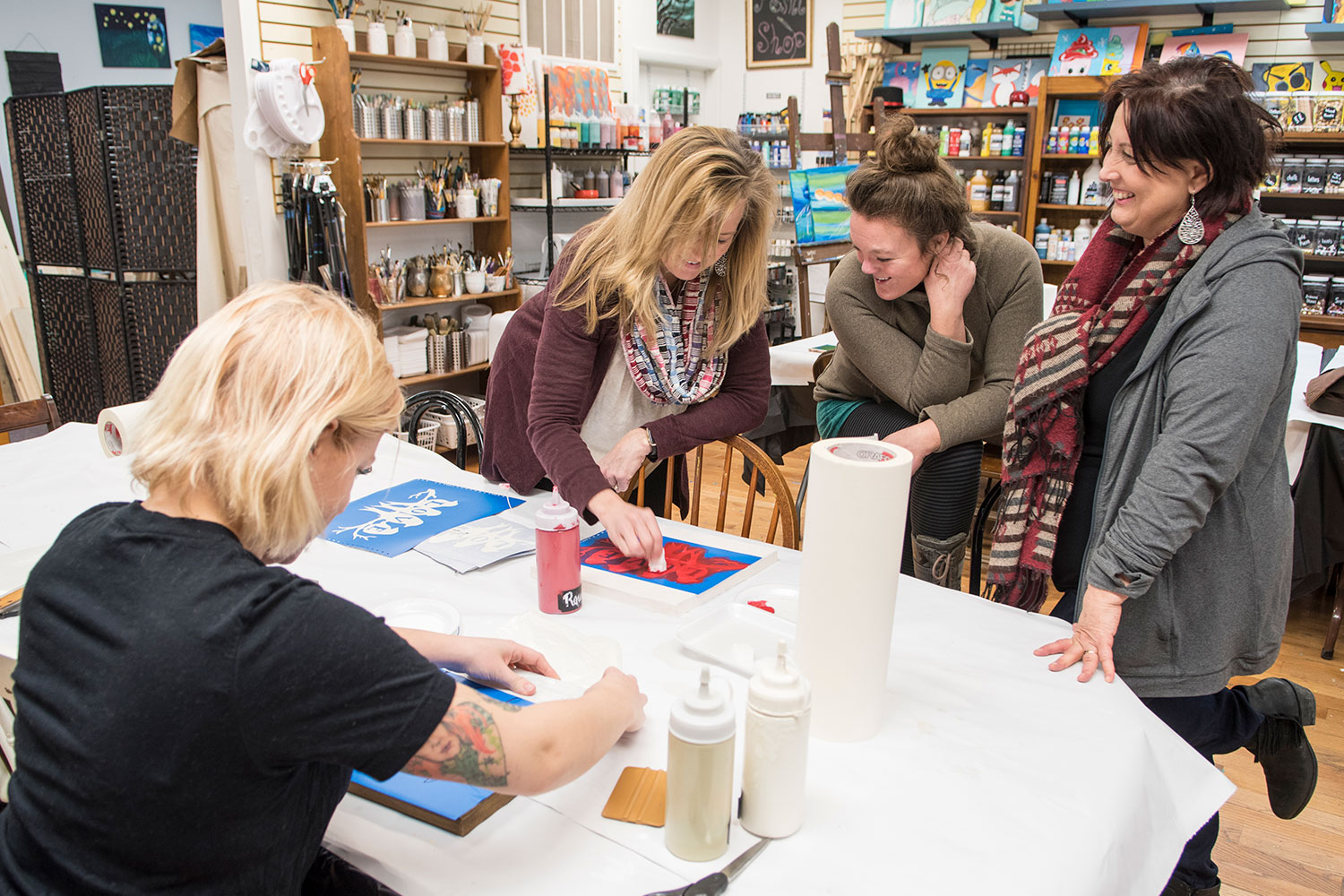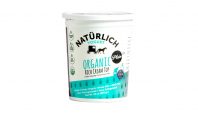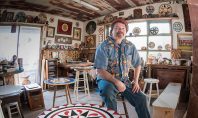Hope & Healing Bring Women to Bloom
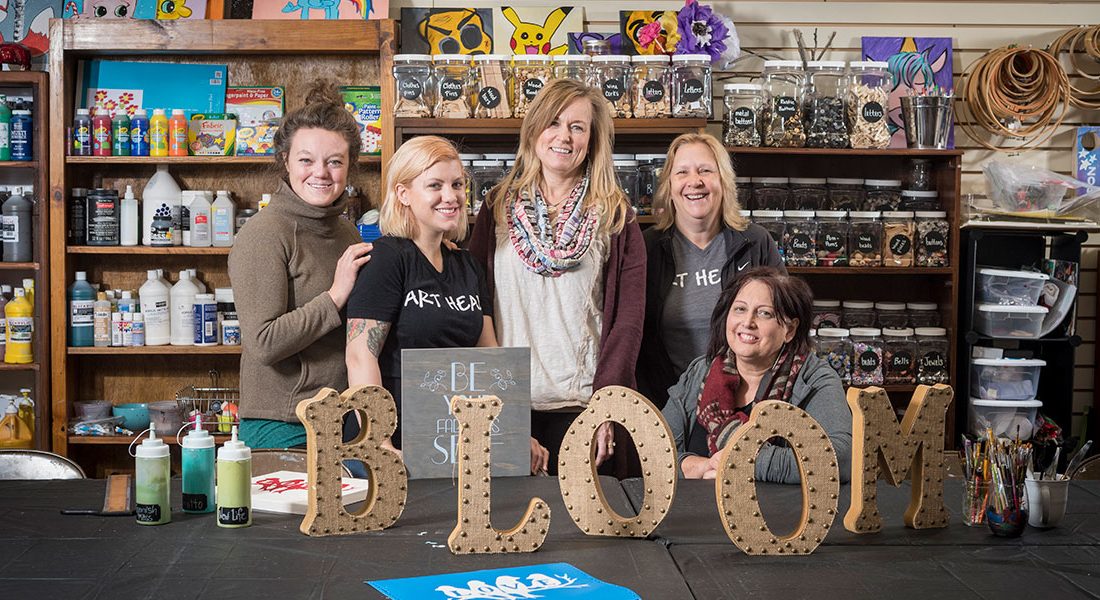
Reclaiming a life from a downward spiral of addiction and violence can seem like an insurmountable challenge. It takes time, effort, courage, and support—both emotional and financial—for a vulnerable woman to recover from a painful past and plant the seeds for a healthy, productive future.
Bloom Bangor offers such empowerment to marginalized women in the Slate Belt area. Along with providing a safe and caring residential environment, outpatient counseling, and life-skill tools, the nonprofit organization has developed a complementary business, Bloom Creative Studio, which provides a welcoming workplace for participants while building a vibrant connection to the community. A simple motto defines the joint programs: love heals.
As a foster parent for Northampton County five years, Bloom Founder and Executive Director, Carol Anderson, had encountered women whose lives were informed by trauma and abuse. “They had lost their children and had extensive addiction issues they were not able to resolve on their own,” she says. “As I looked for solutions, I came across Thistle Farms in Nashville.”
To learn more about this successful social enterprise project and recovery program for women, which has served as a model for more than forty sister organizations across the country, Carol and a friend traveled to Tennessee to attend a Thistle Farms conference in 2014. “We had conversations with about 200 people in attendance about how we could take this back to our own home community, to empower women that were both addicted and survivors of sexual abuse and human trafficking.”
The complex process of launching a nonprofit group boiled down to having one conversation at a time with people in the community. “The more we talked, doors began to open and we came across people with burden similar to ours,” Carol says. “We began a collaboration with Recovery Revolution, which is an outpatient addiction treatment center [in Bangor]. As a result of that very close partnership, we had a framework to begin empowering addicts who were survivors of trauma,” Carol says.
Women are expected to take personal responsibility for themselves and also look after one another in this restorative community.
Community and corporate sponsors, donors, and volunteers stepped forward to assist. One generous individual even purchased a spacious home and had it renovated for use by the group—basically in perpetuity. The house includes four shared bedrooms for the eight women accepted into the 2-year program, which is cost-free.
Without any staff members living on-site, the women are expected to take personal responsibility for themselves and also look after one another in this restorative community. Current participants range in age from 21 to 58, and during their journey toward self-sufficient living they may go to school or learn a new trade.
“The model that we’re using is unique: Empowerment is an approach of believing in the women until they can believe in themselves,” says Carol. “And there are certainly rules to follow, but many victims of trauma have trouble working in very authoritative environments. Rather than doing a lot of dictating, this is a more individual, holistic approach to healing.”
Of course, there’s plenty of structure in the lives of the women, who undergo intensive counseling at Recovery Revolution during the first three months of the program. They receive life-coaching from Bloom board member Terry Wilson, and a CPA volunteer provides guidance on budgeting and managing finances—which is important since opening a banking account is required, as is securing employment.
The women are also responsible for the upkeep of the home and gather several times a week with staff for “circle time,” which includes discussions on health of mind and body, and poetry reading.
Anderson explains that Thistle Farms calls their graduates survivor-leaders, and notes that Bloom women learn to lead in their fellowship. “We don’t want it to stop there; we want that to translate into their community.” One way to do that is by playing a role in the ancillary business that helps support the group financially. Whereas Thistle Farms operates a bath, body, and home products company, along with a running a café, Bloom went in a different direction by opening a DIY arts and crafts studio in downtown Bangor within walking distance of the house. The well-stocked 2,400 sq. ft. creative space offers workshops, classes, event hosting, and open studio time. “People can drop in anytime and craft and create in a whimsical, creative, and classic environment, and they pay for that. So the women living at the house actually work in the studio, and they develop a lot of the activities. That’s a way for them to engage with our community in a positive way. It’s very different from other recovery houses,” Carol says. Experienced artists and artisan crafters also staff the studio. A soon-to-be-added kiln will expand the artistic opportunities.
Ashley in Bloom
At age 28, Ashley found herself in jail with addictions to drugs and alcohol. An aunt suggested Bloom as an option for post-release recovery and she had an intake interview with Carol and Terry. “I decided that wasn’t for me and I’d do it on my own. A month later I was back to the same old things—drinking and drugs, the things that got me into jail. I knew if I didn’t get help I was going to die,” she says. “I contacted Bloom again and, by the grace of God, they still had a bed available and were willing to bring me in.”
Having completed intensive counseling after her October admission, Ashley now attends two groups a week while working at Tuscarora Inn and Conference Center and Bloom Creative Studio. Her initial interest in jewelry-making has branched into designing stencils for signs on the computer.
Although wary at the start, positive relations with house members and staff have taught her to trust again. “I’m learning to love people where they’re at,” Ashley says. “It’s very different from what I was used to. That’s allowed me to reconnect with my family.” One especially important contact has been with her now-9-year-old daughter who was adopted within the family at age one-and-a-half. And Ashley recommends Bloom to women in need as “the best decision you can make—learning to respect yourself and loving yourself, and allowing others to love you.”
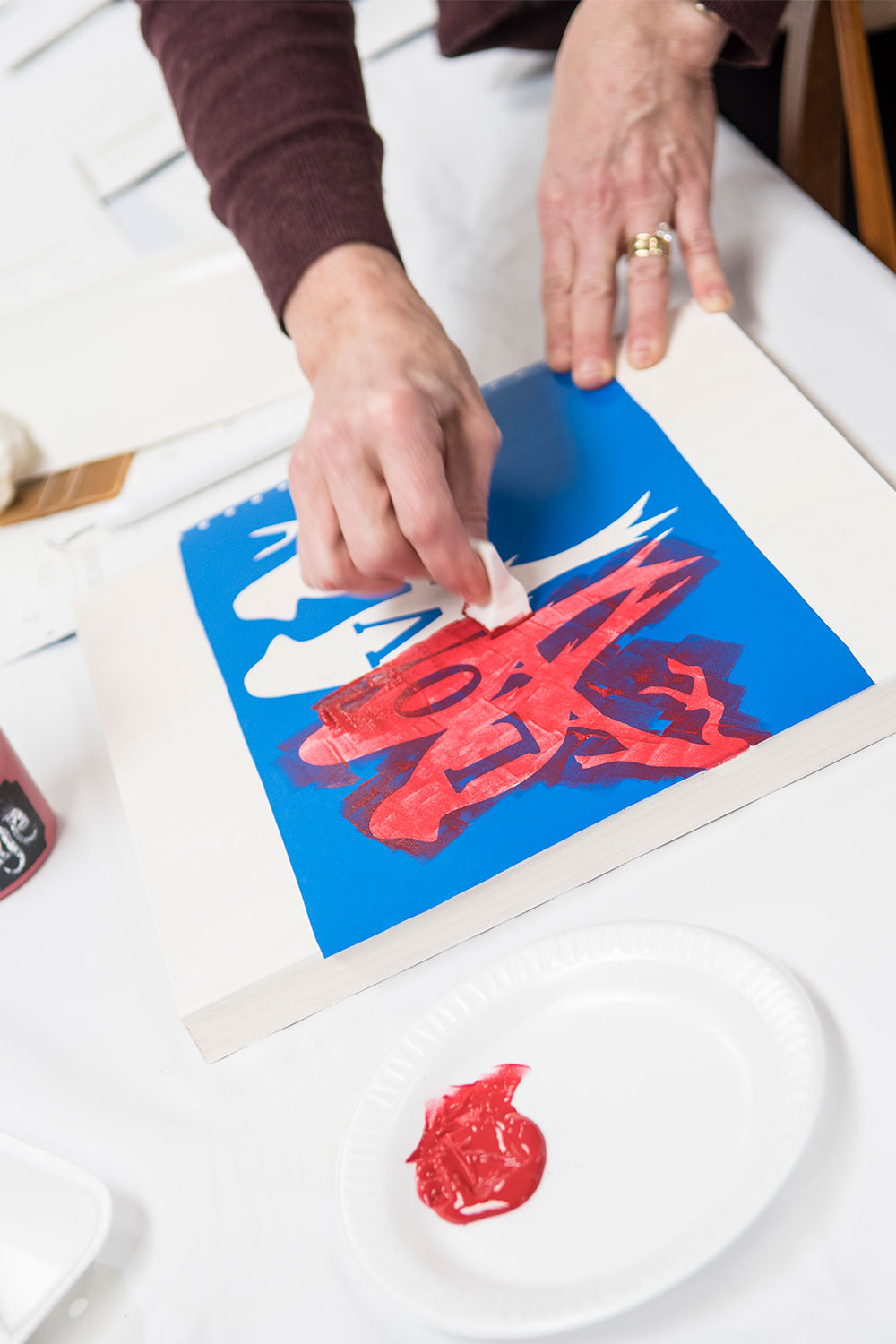
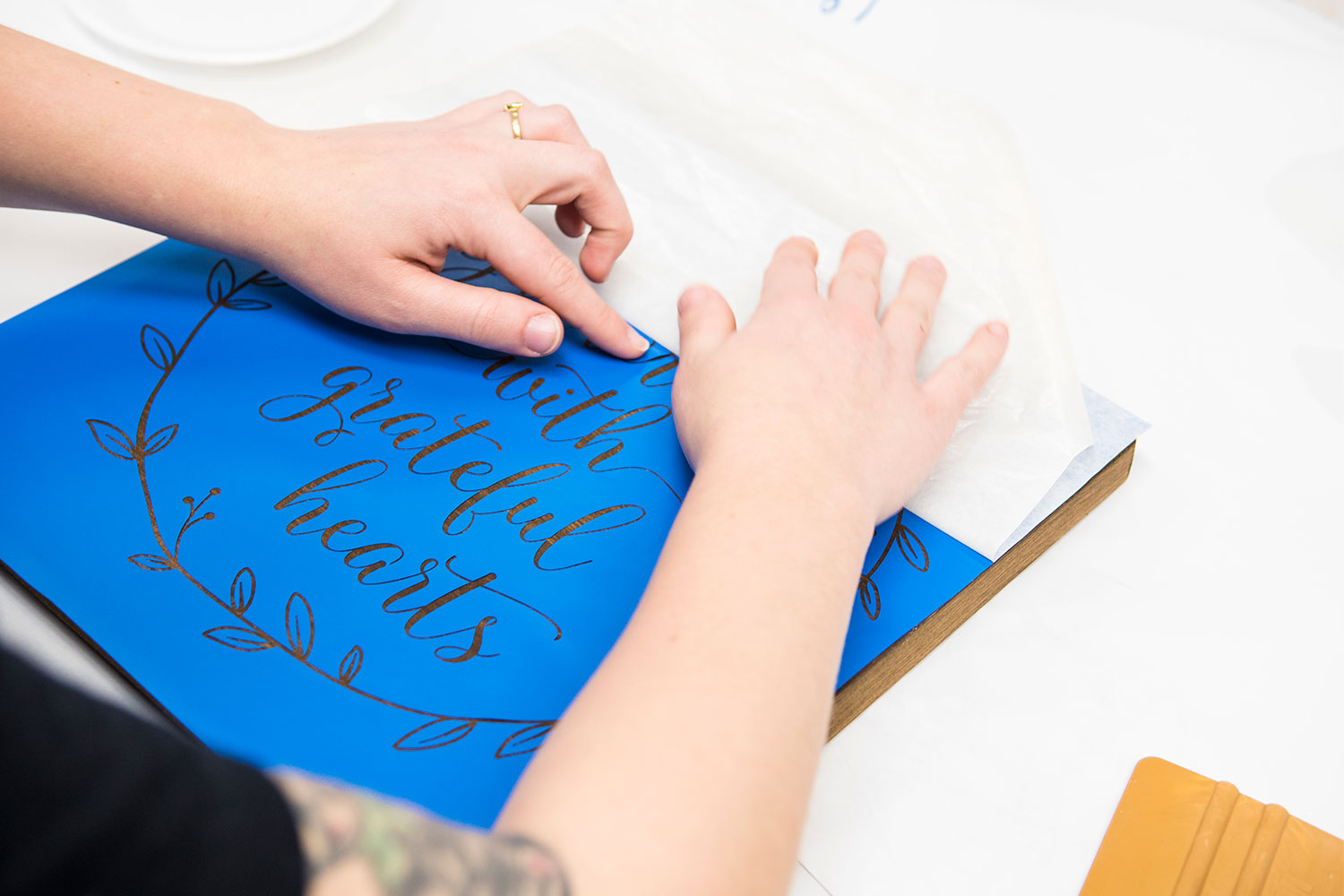
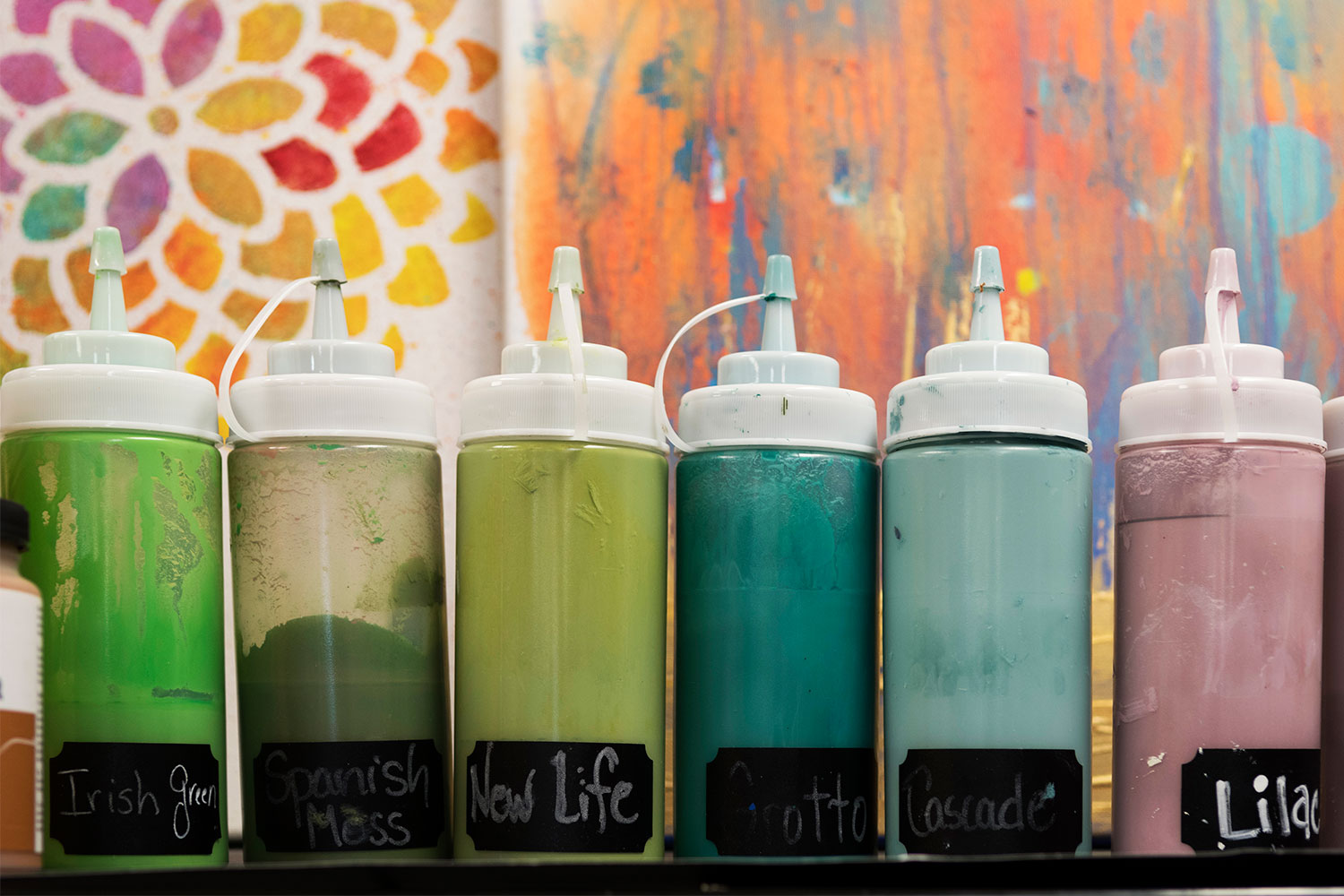
Jasmine in Bloom
The current longest-term resident, Jasmine, 39, has been in the Bloom program since August 2016. She had previously been in another rehab when a counselor suggested Bloom. “He knew from our talks that I was creative and had painted. The studio being affiliated with the house was an interesting point—not only do you have a place to live, but you have a creative avenue already connected,” she says.
However, when Carol and Terry said she’d be a “perfect fit” for the program after an extensive interview, Jasmine wondered, “How could I be a perfect fit anywhere? At that time I had nothing to offer anyone. But I went there.”
Therapeutic counseling at Recovery Revolution turned out to be a “profound experience—the professionalism, caring, and open-mindedness, and the consciousness and awareness of addiction and trauma combined,” she says. “I wasn’t being rehabilitated since that would mean I was once habilitated.” For the first time, Jasmine finally felt like a fully empowered member of society. “Others had respect for me—this was all new to me—and I gained insight into my conditioning for addiction.”
And in the Bloom program, Jasmine also finally felt safe. “How can any life change if you don’t feel safe?” she reflects. While she started out doing simple tasks at the studio and continues to help out when needed, Jasmine found several part-time jobs in downtown Bangor. “Not only did those businesses welcome me, all the individuals welcomed me. I can’t say enough about Bangor as a town and community. There’s so much support for Bloom.”
Bloom Creative Studio
32 Broadway, Bangor
610.588.4775
bloombangor.org

